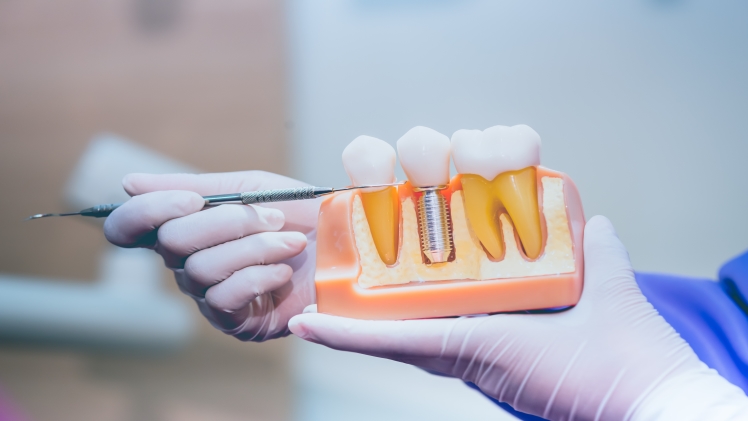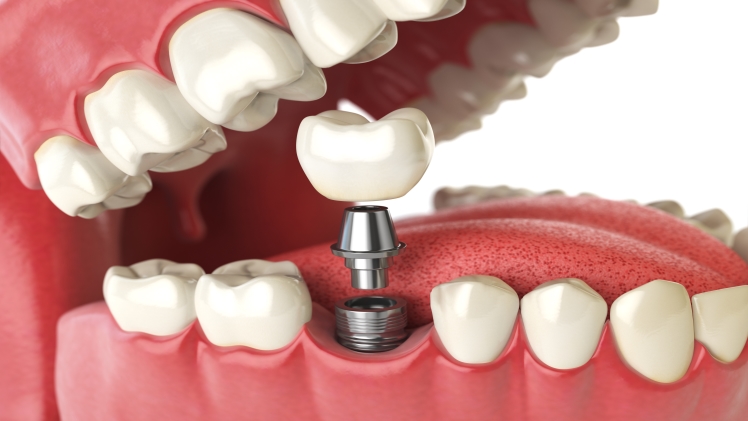Following dental implant surgery, you’ll have a new pair of pearly whites. Operating on your teeth could give you improved bite functionality, improved oral health, and the ability to smile again. Typically, most implant procedures for teeth are usually free of complications. But for you to recover fully after your surgery, you’ll need to take proper care of your new implants. Observing appropriate aftercare will help you prevent complications, unnecessary pain, and discomfort. It can also make your road to recovery shorter.
With your health in mind, you might ask yourself, what are some aftercare tips to follow after my surgery? If you’re searching for information, look no further because here’s a breakdown of valuable tips to follow to ensure your road to recovery is smoother.
-
Quit Smoking And Alcohol
Besides leading to cancer, smoking makes recovering from the procedure you’ve had at Aria Dental more complicated. Smoking hampers blood flow and lessens oxygen throughout your body. This means if you smoke after your surgery, you could prolong the healing process and cause your body to take more time to regenerate. In addition, smoking can destroy the gums and increase the chance of infection, causing the implant to discolor.
You should also quit drinking alcohol ideally for two weeks after your implant surgery. It’s essential to do this because alcohol can destroy the tissue and also affect your healing capability. Drinking alcohol is also linked to the slow formation of blood vessels, which could affect the implant and bone from fusing correctly.
-
Watch Your Post-Surgery Diet
After your implant surgery, your teeth and gums could probably feel sensitive. Therefore, you should avoid any food or drink that might cause unnecessary pain, including anything too hot or cold. The tissue surrounding the implant will need time to build resistance to different temperatures and textures, so, if possible, refrain from anything too harsh on the teeth.

With this in mind, because your teeth could be the most sensitive during the first couple of weeks after surgery, you’ll have to be careful about eating certain foods. Foods like eggs, soup, mashed potato, and yogurt don’t require much effort to chew and wouldn’t get trapped in sutures or gaps. These foods also minimize jaw movement when chewing, which could lessen of irritating your wound and slowing your recovery.
-
Cold Compress
After your dental procedure, you could experience bruising or swelling. This could lead to an uncomfortable experience. A cold compress could help address this issue by reducing the swelling, thereby reducing the discomfort and pain. In addition, it could also promote a quicker turnaround time.
When cold pressing, you should place ice packs over the swollen area for about 20 minutes, remove them, then start the process again. It’s important to make sure the ice packs are wrapped in a cloth to prevent any damage to the skin.
-
Get Enough Rest
Following your procedure, you shouldn’t go back to your normal activities. Your body may feel exhausted from anesthesia, so take the time and rest if your body needs it. If you feel drowsy, lie down and take a nap. Never participate in strenuous activities such as going to the gym or driving a vehicle. Overexerting your body heightens the chances of disturbing your implant or moving blood clots that could have formed during your surgery.
-
Practice Good Dental Hygiene
Practicing excellent oral hygiene reduces the risk of mouth illness and prevents food particles from sticking to your implants. Using warm salt water could ensure your mouth is clean and free of bacteria.
Dentists also recommend salt water because it contains nutrients your body needs to heal. Rinsing your mouth with salt water a few times throughout the day could help promote faster healing and overall dental health. With that said, when in the process of rinsing with warm salt water, never swish with excess force.
When safe and possible, you should resume regularly brushing your teeth to prevent bacteria and germs. However, you should wait a few days before brushing the area close to the implant. Be sure the toothbrush you use has flexible and soft bristles to prevent causing harm to the affected area that could be still sensitive.
Takeaway
While dental implant surgery can be relatively short and uncomplicated, fully recovering from this procedure requires full commitment from you. Plan accordingly and observe how long your healing process takes. It won’t be a short road to recovery and won’t happen overnight. Using the tips highlighted in this article, you’ll find yourself bouncing back to your regular activities in no time.

